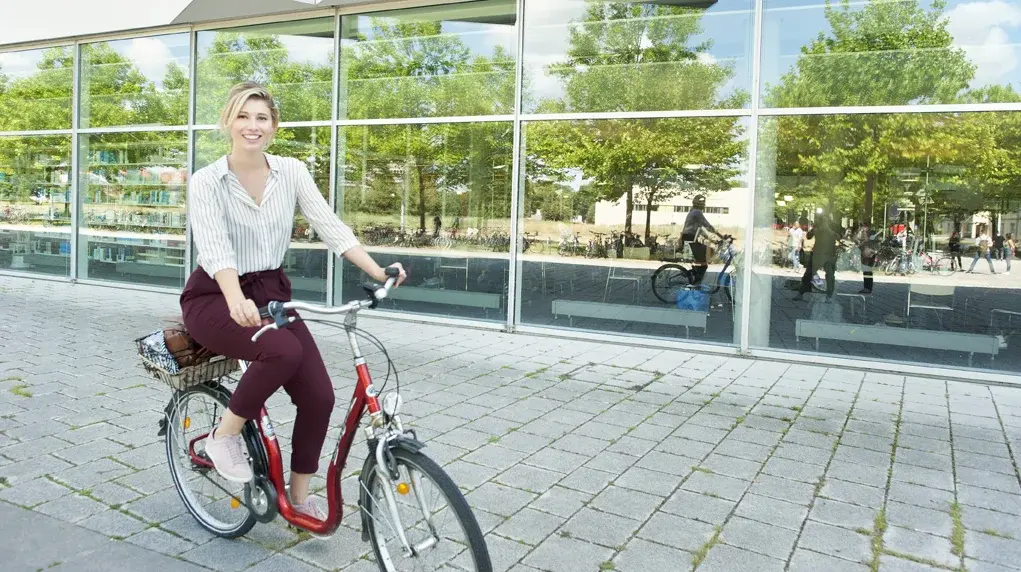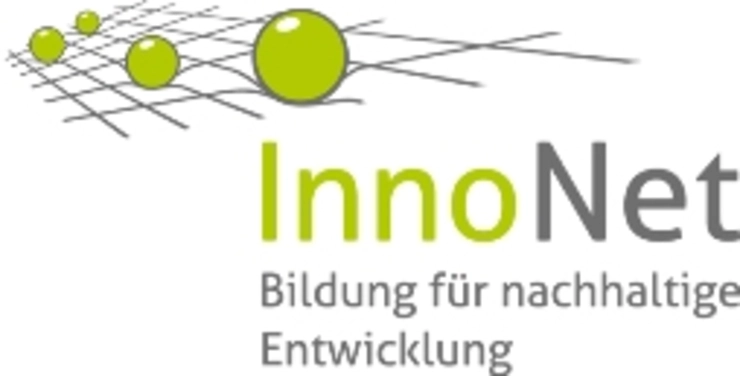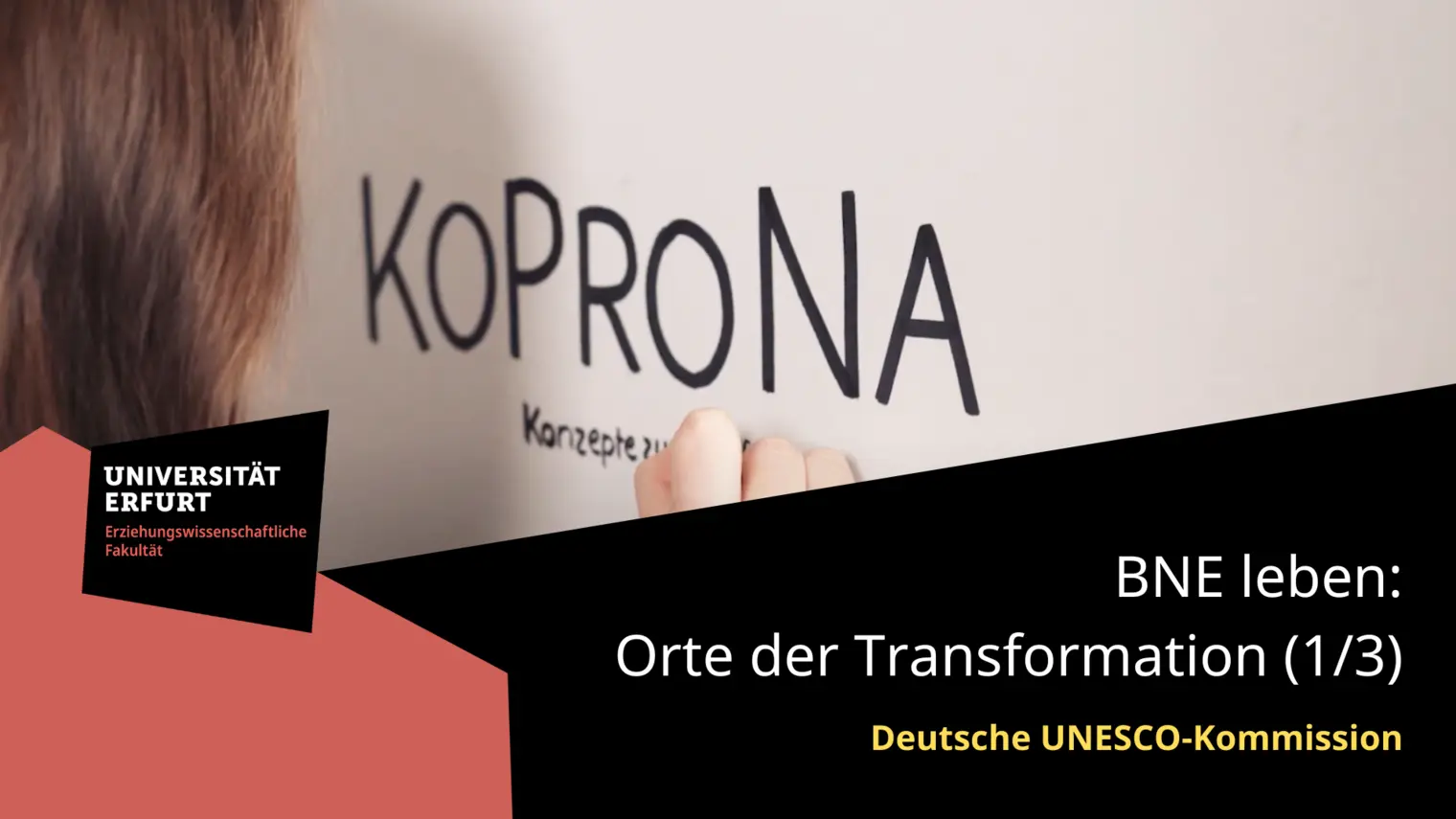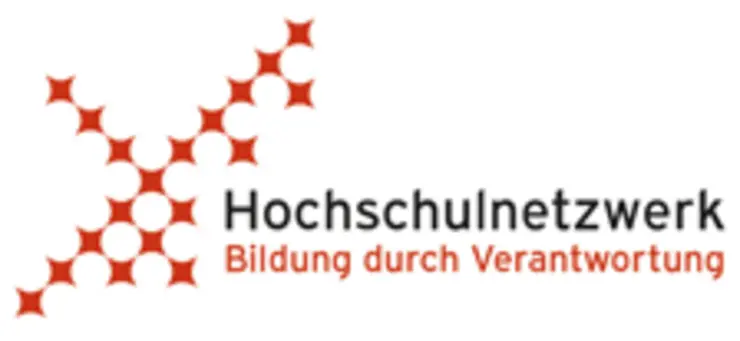Sustainability
Think about the future
Sustainability is an important concern for us. This applies not only to our teaching and research, but also to everyday life on campus. The university management has therefore pushed central steps such as participating in the competition for the "Ökoprofit" environmental seal of approval, which has been awarded several times – as well as the progressive conversion of procurement to a sustainable supply. For many years, our students have been involved in student university groups such as the Sustainability Working Group, which not only sells ecological stationery and fair trade products, but since 2007 has also been a practical partner of the student-organised course Studium Fundamentale "Sustainability – Improving the World with Practical Projects", in which more than 1000 students from all disciplines have participated to date. In cooperation with non-university practice partners, the students test themselves in the organisation of practically oriented projects in the field of sustainability and acquire key competences relevant to their profession. This student-organized seminar has been awarded several times as an officially recognized project of the UN Decade of Education for Sustainable Development.

Networks
The University of Erfurt is aware of its responsibility to anchor sustainability beyond its own campus. It therefore participates in various networks whose aim is to establish sustainable thinking and action in different areas of life in today's and future society.

Since the end of 2010, the University of Erfurt has been supporting the Thuringian Sustainability Agreement (NAT), in which Thuringian commercial enterprises and public institutions work together to improve the framework conditions for the further economic development of Thuringia in terms of sustainability.

The University of Erfurt is also a major participant in the Innovation Network Education for Sustainable Development (InnoNet BNE), a regional network of actors from education, civil society, business and local government to promote Education for Sustainable Development.
Universities play a key role in the process of social transformation. They are places where future decision-makers are trained and (discursive) spaces that can serve as a laboratory for sustainability. Four Thuringian universities are therefore pooling their expertise in this project and continuously developing it further as part of the research project ‘KLIMA-Netzwerk für mehr Nachhaltigkeit in Thüringen’ (KLIMA Network for more Sustainability in Thuringia).
link to the website (in German only)
Environmental label "Ökoprofit"
In 2014, the University of Erfurt was again awarded the "Ökoprofit" environmental seal of approval. It is thus one of more than 110 institutions that have received this award in Erfurt since 2000. In Germany, more than 2000 companies in over 90 cities have so far received the coveted municipal award. They are all committed to the sustainable use of resources and to making an active contribution to reducing the burden on the environment and lowering energy costs. A commission has now once again visited the university as part of an audit to assess the university's projects and measures relating to sustainability, resource conservation and occupational safety.
As part of the economic stimulus package, the external facade of the listed high-rise building on the campus of the University of Erfurt was renovated in 2010. To ensure a second structural escape route, a second escape staircase had to be built on the south side of the building. In joint coordination between the building authority, the monument authority, the fire department, the TLBV and the university, this extension was planned and executed with a photovoltaic system on the façade. The system has been in operation since 23 December 2010.
The 352 solar modules have a rated output of around 28 kWp and are expected to produce around 17,300 kWh of solar electricity per year. This means an approximate saving of about 2,500 euros per year in unpurchased electricity plus the current state subsidy of about 2,300 euros per year.
Further photovoltaic systems are in the works or at the planning stage:
A corresponding system with 117 KWp is to be commissioned on the roof of the Centre for Communication and Information (KIZ) in mid-2023. The PV modules have already been installed. The electrical energy generated there is to be consumed entirely on campus in the future.
The next systems are to be installed on the west side of teaching building 1 (with 137 KWp) and on the roof of the sports hall, which is currently being renovated (with 148 KWp). Completion is currently planned for 2025.
Contacts
adjunct Professor Bettina Hollstein
phone: +49 361 737-2802
e-mail: bettina-hollstein@uni-erfurt.de
The current contact persons at the Student Council can be found on the website of the department at: www.uni-erfurt.de/der-stura-der-uni-erfurt-stellt-sich-vor/gremium/der-stura/referat-nachhaltigkeit.
Manja Apflestädt in Department 1: Registrar's Office is the contact person for course coordination for the Studium Fundamentale “Sustainability”.
The contact persons for the innovation network for education in sustainable development at the University of Erfurt are Professor Sandra Tänzer and Adjunct Professor Dr. Bettina Hollstein.
Projects and university groups
Whether it is our "Puzzle Box" rummage shop, or the commitment of our students in university groups such as the Sustainability Working Group or our "Campus Bees" project - sustainability is a topic that is also reflected in the teaching at the University of Erfurt and in various projects as well as in the commitment of numerous groups. We present a few of these in the following.
The aim of the "KoProNa - Konzepte zur Professionalisierung des Ausbildungspersonals für eine nachhaltige berufliche Bildung" project, which is being funded by the BMBF with 500,000 euros from 2016 to 2019, is to support companies and educational institutions in developing and implementing concepts and strategies for sustainable vocational education and training on the basis of the general conditions in the company.
Further information about the research project.
The KoProNa project is also presented in the video "BNE leben: Orte der Transformation (1/3)" by the German Commission for UNESCO. (from approx. 06:30 min).

Please note: Once you watch the video, data will be transmitted to Youtube/Google. For more information, see Google Privacy.

The Swap Shop is a sustainable exchange service shop for household items and other useful things. The offer is aimed for international students who come from abroad to study in Erfurt and need household items such as pots, dishes, towels, etc.. These can be borrowed (depending on availability) from the Swap Shop. At the end of the study stay, the items should ideally be returned.
Of course, all other students and employees of the university can also support the project by dropping off household items, cutlery, glasses, towels, etc. that they no longer need themselves to the Swap Shop. Please make an appointment!
Where? The Swap Shop is located in the basement of building LG 2, room 3b (-112)
Save the Bees!: Bees for the Campus
Did you know? The Germans are world champions at eating honey. It's no coincidence that sayings like "busy bees" or "land where milk and honey flow" refer to the positive perception of bees. However, the fact that bees even play a very decisive role for our ecosystem - 80 percent of all domestic cultivated and wild plants depend on pollination by bees - is unfortunately far too little known. Actions such as "Save the Bees" or city beekeeping are now increasingly drawing attention to the importance of bee colonies and the problem of bee mortality, which has been with us for several years.
Thanks to the cooperation of its department of expertise, the university communications and a committed employee and hobby beekeeper, the University of Erfurt has also joined the "city beekeepers" of Erfurt in summer 2015 and now houses two bee colonies in its school garden. An excellent and sustainable cooperation as we find. Because not only our school garden, but also the entire university campus and the adjacent meadows offer a rich variety of plants, which you will certainly be able to taste in our honey "Campus Gold". And last but not least, our prospective school garden teachers learn how to deal with the bees. And their future pupils will benefit from this in several learning areas.
Recently, the university was even honoured for its commitment to the bees: In 2018 the Thuringian Ministry of Infrastructure and Agriculture presented the plaque "Bee Friends".
Unfortunately, our colonies were stolen for the second time in the 2024 summer semester, so we have no bees at the moment. We are currently discussing how to proceed and how we can better protect a possible new colony from theft and vandalism. :-(
Projects on the topic of sustainability are being developed by the following three university groups at the University of Erfurt, among others:
- working group “Sustainability” (AG Nachhaltigkeit)
- „Campusgrün“
- „Greenpeace“
For more information and contacts, please visit the website of the Student Council for our university groups.

![[Translate to English:] Mitarbeitergebäude 1, Photovoltaikanlage](/fileadmin/_processed_/5/7/csm_Mitarbeitergebaeude1_UniErfurt_08_82e7b7a36a.webp)
![[Translate to English:] Mitarbeitergebäude 1, Photovoltaikanlage](/fileadmin/_processed_/7/d/csm_Mitarbeitergebaeude1_UniErfurt_10_13e13f57fd.webp)
![[Translate to English:] Mitarbeitergebäude 1, Photovoltaikanlage](/fileadmin/_processed_/8/f/csm_Mitarbeitergebaeude1_UniErfurt_12_1e5e07e45d.webp)
![[Translate to English:] Campusbienen](/fileadmin/_processed_/5/3/csm_Bienen_Campus_Uni_Erfurt_01_69713ba9ad.webp)
![[Translate to English:] Campusbienen](/fileadmin/_processed_/9/3/csm_Bienen_im_Schulgartenfest_Uni_Erfurt_a8f22640b0.webp)
![[Translate to English:] Bienen Honig](/fileadmin/_processed_/7/3/csm_Bienen_Honig_Uni-Erfurt-01_446df2ebbc.webp)

![[Translate to English:] Mitarbeitergebäude 1, Photovoltaikanlage](https://www.uni-erfurt.de/fileadmin/_processed_/5/7/csm_Mitarbeitergebaeude1_UniErfurt_08_bddece27fa.webp)
![[Translate to English:] Mitarbeitergebäude 1, Photovoltaikanlage](https://www.uni-erfurt.de/fileadmin/_processed_/7/d/csm_Mitarbeitergebaeude1_UniErfurt_10_e93a7aa5ae.webp)
![[Translate to English:] Mitarbeitergebäude 1, Photovoltaikanlage](https://www.uni-erfurt.de/fileadmin/_processed_/8/f/csm_Mitarbeitergebaeude1_UniErfurt_12_cb127d08dc.webp)
![[Translate to English:] Campusbienen](https://www.uni-erfurt.de/fileadmin/_processed_/5/3/csm_Bienen_Campus_Uni_Erfurt_01_d2250d20d0.webp)
![[Translate to English:] Campusbienen](https://www.uni-erfurt.de/fileadmin/_processed_/9/3/csm_Bienen_im_Schulgartenfest_Uni_Erfurt_7c1564c017.webp)
![[Translate to English:] Bienen Honig](https://www.uni-erfurt.de/fileadmin/_processed_/7/3/csm_Bienen_Honig_Uni-Erfurt-01_e43bf2409c.webp)